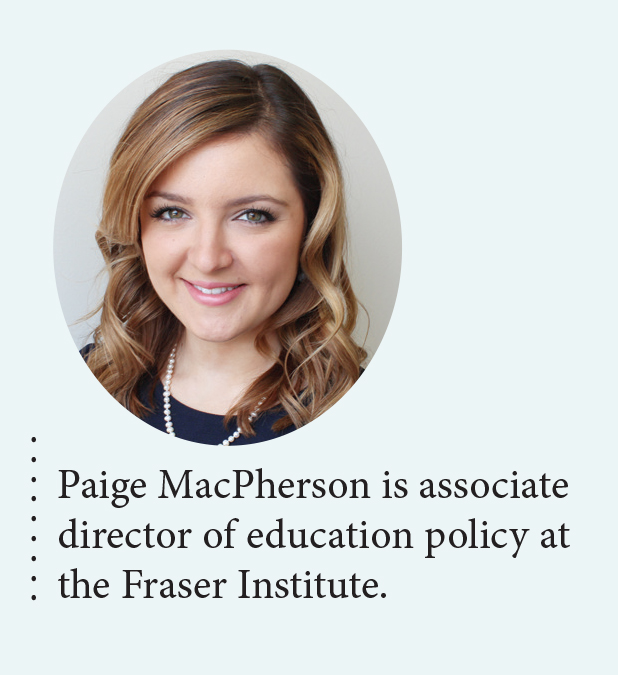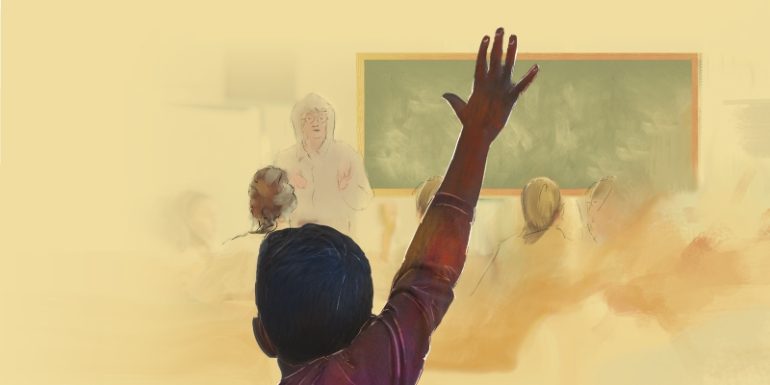By Paige MacPherson
The BCTF, the union representing all public-school teachers in British Columbia, is pushing a fringe view, which is out-of-step with the overwhelming majority of parents—that is, it’s calling for an end to B.C.’s provincewide testing of elementary school students (the Foundation Skills Assessments of FSA) in grades four and seven.
The BCTF also bemoans the existence of user-friendly tools that make these student test results easy to read and understand, such as the Fraser Institute’s B.C. Elementary School Report Card, which has been published since 2003.
The FSAs are the last tests in the province that resemble standardized tests, which are the only objective measure to clearly understand how students and schools are doing in B.C.
This is precisely why the tests are hugely popular with parents.
Indeed, a 2022 Leger poll found that eight in 10 B.C. parents of K-12 kids support standardized testing to know how their children are doing in the core subjects. Further, 96 per cent of B.C. parents of K-12 kids said it’s important to know how their child is doing, by fair and objective measure, in the core subjects. And support from immigrant parents of K-12 students in B.C. was even higher in both cases. Only five per cent of B.C. parents strongly oppose standardized testing, and 10 per cent somewhat oppose.
Clearly, the BCTF opinion that standardized testing should be abolished is a fringe view, in opposition to the vast majority of B.C. parents whose kids are in K-12 schools (and, incidentally, pay for the education system).
Moreover, when student test results are presented clearly, like with the Fraser Institute’s school rankings, they help parents find schools that are the best fit for their children. They also motivate schools to improve and seek out best practices from other schools, which are highly ranked or improving. Last year, about 1.1 million people visited the Fraser Institute’s “School Rankings” website. In Vancouver alone, more than 66,000 people accessed the website last year.
The goal, of course, is lifting all kids and all schools. And the success stories of schools that are improving in the school rankings, despite challenges, are precious gems.
For example, the 2023 B.C. Elementary School Report Card found that Pacific Heights Elementary in Surrey is one of the province’s fastest-improving schools, despite 22 per cent of the student population being English Language Learners. Decker Lake Elementary in Burns Lake also saw amazing improvement, despite 11 per cent of its student population having exceptional needs, which require support. These are success stories worth knowing about.
But the assault on testing in B.C. threatens to suppress these stories of success and the benefits that can have for other schools.
Already, the B.C. government has replaced course-based standardized tests and percentage grades with vague student assessments in grades 10 and 12. There’s been a dramatic drop in student participation in these assessments—meaning we don’t really know how B.C. high school students are doing. Meanwhile, proficiency for those who did write the assessments is shockingly low—only 40 per cent of Grade 10 students who completed the numeracy assessment in 2019/20 were proficient.
Which brings us back to the BCTF—why does it opposes standardized testing, which makes student test results easy for the public to understand?
Because testing is an accountability mechanism. It’s much easier to sweep student results under the rug where parents and policymakers can’t clearly understand them, and simply demand evermore tax dollars. Indeed, spending on government-run public schools in B.C. increased by 12.8 per cent (after adjusting for enrolment and inflation) from 2012-13 to 2020-21, with the vast majority going toward teacher compensation. Yet international tests show B.C. student achievement has dropped in recent years (pre-COVID), especially in math.
To help B.C. students improve, we must first know how they’re doing. This matters for students, families and the province at large. It’s no surprise the BCTF doesn’t want to acknowledge this, but thankfully B.C. parents do.




